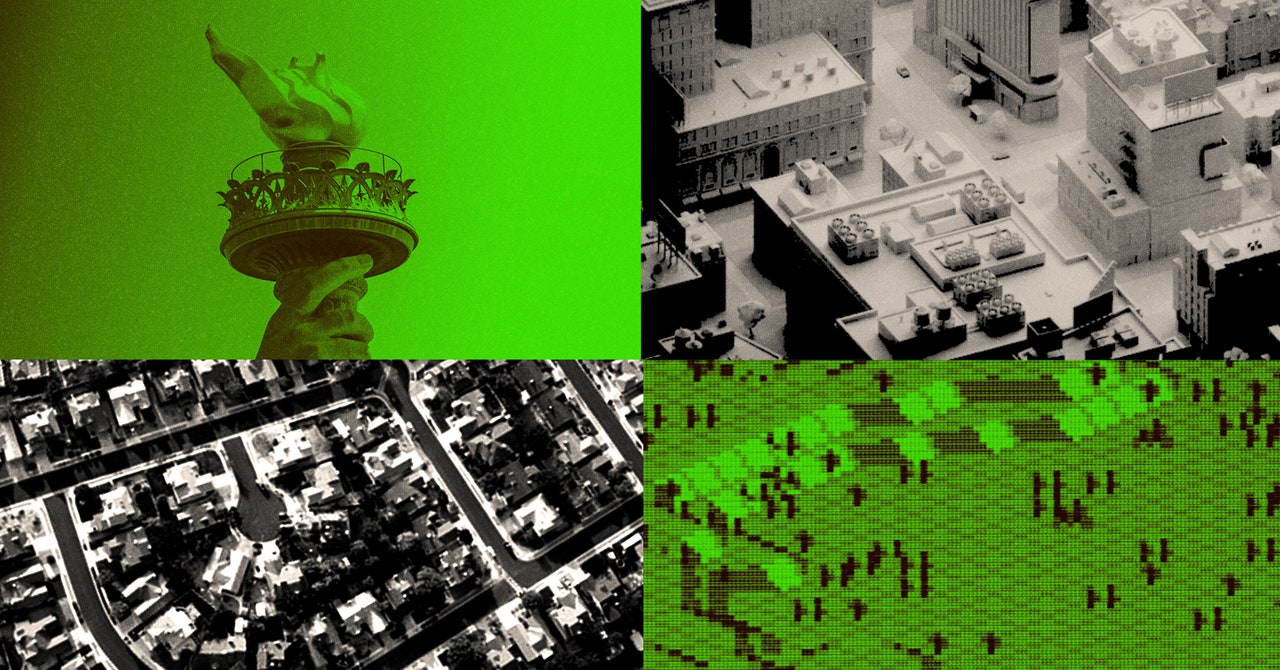All simulations are ultimately constrained by their creators’ assumptions: They are self-contained universes ticking along to preprogrammed logic. They don't necessarily reflect anything fundamental about the world as it is, much less how we may want it to be.
 exactly. the map is not the territory. no simulation could possibly capture the complexity of an entire neoliberal capitalist economy and predict the long-term equilibrium outcome of such a system.
exactly. the map is not the territory. no simulation could possibly capture the complexity of an entire neoliberal capitalist economy and predict the long-term equilibrium outcome of such a system.An artist named Vincent Ocasla, for instance, created a city with a stable population of 6 million. The only catch? It was a libertarian nightmare world. It had no public services—no schools, hospitals, parks, or fire stations. His dystopia had nothing but citizens and a concentrated police force populating an endless plain of one bleak city block, copied over and over.

Vincent Ocasla
i remember this guy: https://www.youtube.com/watch?v=NTJQTc-TqpU
I found a YouTube link in your comment. Here are links to the same video on alternative frontends that protect your privacy:
His dystopia had nothing but citizens and a concentrated police force populating an endless plain of one bleak city block, copied over and over.
Are we sure this isn’t gomnunism?
Yeah turns out designing something that looks like an American city isn't enjoyable when your city has to be 50% parking lots and whatnot
I knew something was sus when they added the "Set Age of Consent: 0-99" setting.
bearded guy with glasses You can’t raise the age of consent! YOU WILL REGRET THIS
Kinda wish they included some specific example mechanics with comparisons from other games
I haven't played Tropico in a long time but even if that game is very on the nose with the "some are more equal than others" communism, I think in general in that game you have to build all the housing yourself.
Without reading the article the key feature of Sim City clones is the RCI(residential, commerce, industry) demand meter which as it says, the higher each bar the more zoning is necessary. There is a direct relationship between them too as one is meant to drive the others. The point is you just "follow the market demand" and the city grows naturaly with no real planning, just the market tells you what is best to do next.
If you compare to real world Chinese real state development for example, where they build entire towns years in anticipation of real demand, in Sim city clones the most you can do is plan some roads and zones and hope for the best. This is the dev's design intention obviously I think a good player can make good looking stuff too.
I think Cities skylines got a little more control given all the DLC stuff, but clearly the DNA is from the free market ideal presented here. Land value dictates what kind of building model.
I think in all these games land value is seen as the higher the better, with none of the real world downsides let alone the real mechanisms that drive land value up in the first place, its explicitly higher = better. These valuations tend to be realy naive like "oh got all basic needs? Got crime down? Got a few parks? Great now see land value go brrr"
Again maybe CS is a bit better because there are so many laws and government stuff there compared to Sim City. I haven't played in a long time too but again in a game like Tropico usually its not quite the same as that with some exceptions like maybe the best places to place tourist related buildings etc.
Skylines does feel like the closest to trad sim city, and is further filled with suburban brainworms.
This makes me want to play workers and resources today
Yeah I mentioned Tropico because its the closest contemporary to the old Sim City games. Workers is definitely better in many ways.









